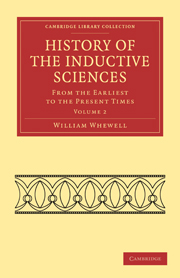
- Cited by 1
-
Cited byCrossref Citations
This Book has been cited by the following publications. This list is generated based on data provided by Crossref.
Dessart, François and Triquet, Éric 2019. Les analepses dans les récits de médiation géologique « sur le terrain » : un outil pour mobiliser la démarche historique ?. RDST, p. 117.
- Publisher:
- Cambridge University Press
- Online publication date:
- September 2011
- Print publication year:
- 2010
- First published in:
- 1837
- Online ISBN:
- 9780511734342


